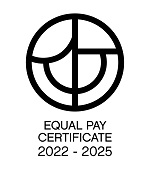Samherji Fish farming awarded ASC certification
Samherji Fish farming has been awarded the ASC environmental certification for its land-based farming and production of Arctic char.
The ASC (Aquaculture Stewardship Council) certification is one of the most stringent environmental certifications in aquaculture and is recognized worldwide. Samherji Fish farming operates two on growing farms for Arctic char in the Southern Peninsula Region, and the production was about 3500 tons last year. The company also has Whole Foods Market and BAP (Best Aquaculture Practice) certifications.
"Our goal is to pursue sustainable and environmentally friendly fish farming, so we are very pleased to have the ASC environmental certification," says Ms Heiðdís Smáradóttir, project manager and quality manager at Samherji Fish farming. Lloyd's Register carried out the ASC audit at Samherji Fish farming.
Many involved in the development of the ASC standard
The Aquaculture Stewardship Council, the body behind the certification, is an independent non-profit organization. Heiðdís Smáradóttir says that strict conditions must be met to receive the certificate.
"Many different stakeholders have been involved in the development of the ASC standard, such as nature conservation organizations, aquaculture companies, retailers, food producers, scientists and government agencies, but the standard is based on the ideology of the World Wildlife Fund. The ASC standard is adapted to aquaculture products and is analogous to the MSC standard, the best known environmental standard for wild fish stocks. To pass the certification, companies must, for example, demonstrate that they strive to minimize the environmental impact of their operations and that they work in harmony with society. Therefore, the companies need to meet requirements regarding the environment, labour legislation, and society," says Smáradóttir.

Leading in marketing
Birgir Össurarson, sales and marketing manager for Ice Fresh Seafood which handles sales for Samherji Fish farming products, says that the certification is of great and positive significance.
"Our goal is to be at the forefront of Arctic charr production and sales and a marketing leader globally. For this to happen, we need to meet the requirements and wishes of our customers. What makes the ASC certification special is that it is widely recognized worldwide, beyond other certifications. We Icelanders are the world's largest producer of farmed Arctic char, and Samherji Fishfarming is at the top. We are therefore pleased to announce this news to our customers because all positive reviews are important to the industry," says Össurarson.
Ensures good health control

Manufacturers of fish feed used in farming also have to meet strict requirements. For example, it is necessary to ensure the traceability and quality of all raw materials, and at the same time, the fishmeal and oil used in the feed must come from sustainable fish stocks. In addition, aquaculture companies with ASC certification need to regularly monitor the release of organic matter into the environment by taking samples from wastewater. There are also high standards for disease prevention, and ASC certified fish farming companies need to work closely with veterinarians to ensure good health control.
The risk of release is negligible
Another critical factor that the ASC addresses are the release of farmed fish and protections against it. "The discussion about aquaculture in the community has revolved around the protection of wild salmon stocks and salmon lice. Among the advantages that land-based farming enjoys is that there are no salmon lice and consequently no use of medicines and the risk of release is almost non-existent," says Heiðdís Smáradóttir.
Good cooperation with the local community
The ASC standard also places high demands regarding corporate social responsibility. The safety of employees in the workplace must be ensured with the right conditions and regular training. The general rights of employees and wage issues must be in order. At the same time, it must be demonstrated that there is good cooperation with the local community, residents and municipalities.


